I have an actions file like this:
export enum ActionTypes {
FailureAction = 'Failure action',
}
export class FailureAction implements Action {
readonly type = ActionTypes.FailureAction;
constructor(public payload: any) { }
}
export type ActionTypes = FailureAction;
I want to add some logic in the FailureAction class so that whenever this action gets called, we call a service that decides how to show an error (the only parameter is a code). I created a class that has the code parameter in the constructor and uses a dependency injector defined in the app module (Inject a service manually) to get the service needed. Then I extended the FailureAction with the newly made class and called super() with the code parameter in the constructor. When I dispatch the FailureAction the console gets bombarded with errors and crashes the whole application.
Is this even doable the way I'm trying to do it? Any alternative suggestions?
